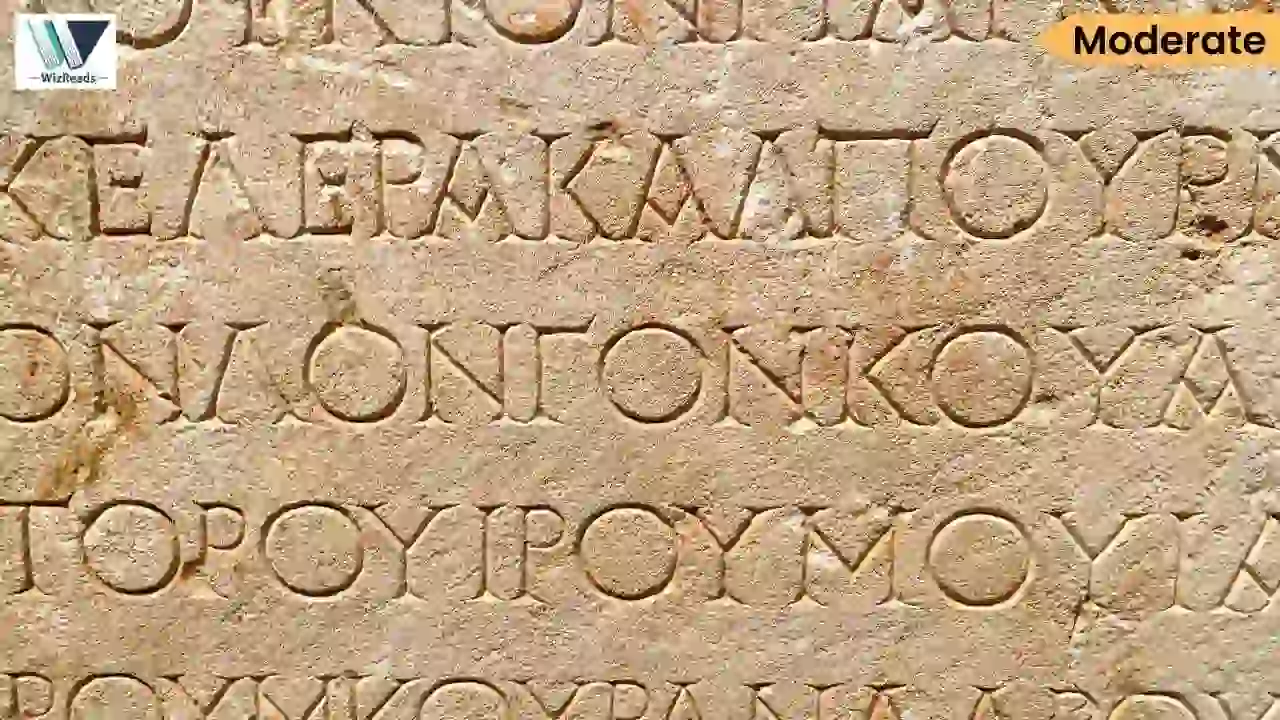
Newsletter Subscribe
Enter your email address below and subscribe to our newsletter

Enter your email address below and subscribe to our newsletter

Wonder why we reach for ancient languages when naming modern threats? What do our naming systems reveal about power structures in science? These medium difficulty passages examine the cultural implications of using Greek letters in scientific naming conventions.
Read these moderate RC passage(s) and answer the question(s) that follows. You can choose the GMAT style Reading Passage and the question or the GRE RC variant and answer the GRE-style question. Even better, you could solve both.
The practice of designating phenomena with classical nomenclature reflects a persistent scholarly tradition that transcends practical utility. Linguistic anthropologists theorize that employing Greek alphabetic designations for contemporary challenges—particularly biological threats—serves multiple cognitive and cultural functions beyond mere identification. Several mechanisms potentially explain this phenomenon: Greek-derived terminology creates psychological distance between the observer and the threat; classical languages confer an aura of scientific authority; and ancient linguistic systems provide a structured, finite framework for categorization.
The COVID-19 variant classification system exemplifies this theory. When viral mutations proliferated beyond initial geographic designations such as “UK variant” and “South African variant”, public health authorities implemented Greek-letter nomenclature. This approach theoretically eliminated stigmatizing geographical associations while maintaining scientific credibility. Evidence suggests this classification system achieved partial success—reducing xenophobic rhetoric while facilitating public discourse about complex virological concepts. However, research indicates persistent limitations, particularly as the availability of letters became constrained relative to emerging variants.
This discrepancy between theoretical advantages and practical limitations manifests in other domains where classical nomenclature predominates, including meteorological systems such as hurricane naming conventions, astronomical classifications like for celestial bodies, and mathematical notations. Scientific historians argue that this pattern represents a cultural continuity dating to Renaissance scholarly traditions, when classical languages symbolized intellectual authority. Contemporary linguists hypothesize that such systems persist not merely for tradition’s sake but because they continue to serve essential cognitive functions in organizing complex phenomena.
While the passage mentions several advantages of Greek alphabetic designations (reducing stigma, providing structure, creating psychological distance, and conferring scientific authority), it never states or implies that Greek terminology allows for more precise scientific communication than vernacular terms. This advantage is not supported anywhere in the text.
Correct Answer: Choice (C)

Linguists propose that nomenclature systems reveal underlying power structures in scientific discourse. The World Health Organization’s adoption of Greek lettering for COVID-19 variants exemplifies this theory. When variants initially received geographical labels, criticism emerged regarding potential stigmatization. The subsequent implementation of the Greek alphabet seemingly resolved this ethical concern while maintaining scientific gravitas.
However, critical linguists argue this solution merely substitutes one Eurocentric framework for another. Evidence supporting this critique includes the historical privileging of classical languages in scientific domains and the continued exclusion of non-Western naming conventions. The system’s limitations became increasingly apparent as variants multiplied, potentially exceeding available Greek characters. Proponents counter that Greek lettering provides neutral, systematic labeling divorced from geographical associations. This debate reflects broader tensions in scientific communication between accessibility, neutrality, and cultural bias. Research suggests effective nomenclature must balance practical utility with awareness of linguistic hierarchies that may inadvertently perpetuate colonial knowledge structures.
“Scientific Nomenclature: Between Utility and Cultural Bias” best captures the central theme of the passage, which examines how naming systems in science (particularly the Greek alphabet for COVID variants) balance practical usefulness with potential cultural biases. The passage presents both sides of this tension – the utility of Greek letters as neutral identifiers and the critique that they represent Eurocentric frameworks – making this title the most comprehensive representation of the passage’s main ideas.
Correct Answer: Choice (E)